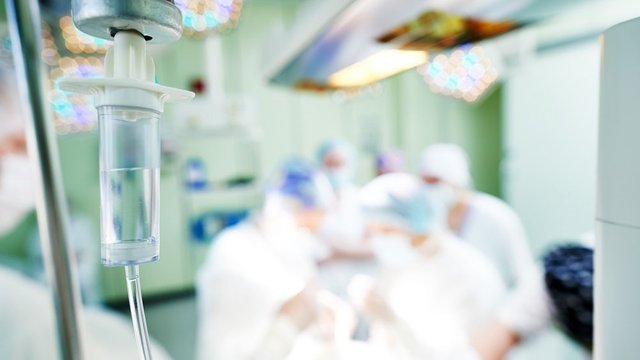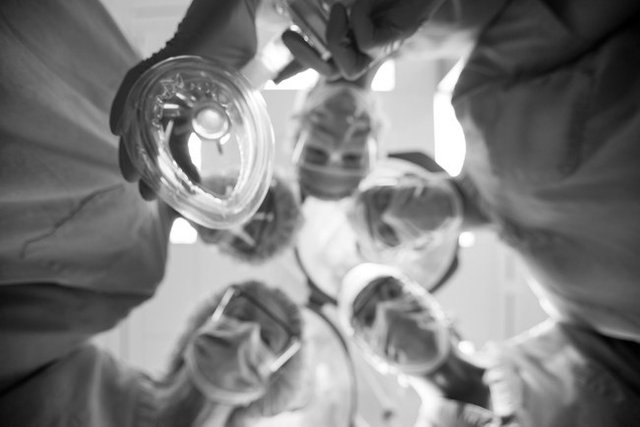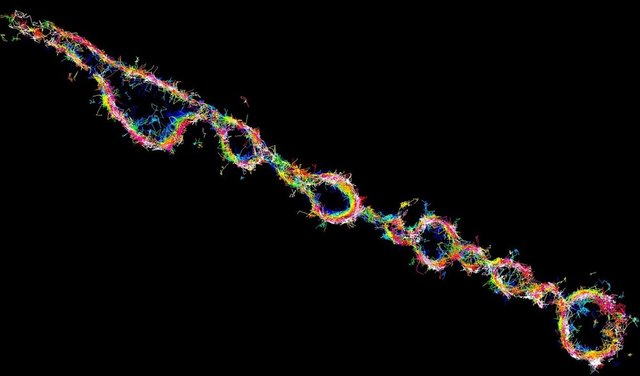Studies Show That Anaesthetics Do More Than Just Induce Sleep
Anaesthetics have been one of the greatest discoveries in medical history. Our ancestors of ancient medieval times would be wishing they had the knowledge and science of modern day anaesthetics which has made medical incisions and surgical operations a piece of cake for the patient.
I’m very sure it couldn't have been any worse for a patient in the medieval era that was battling with a sickness, ailment or injury to have to be fully awake and conscious as incisions were carried out by doctors to alleviate their sufferings. Such a painful experience is probably a very perfect example of a double-whammy.
Our consciousness is quite volatile being that it is a deep function of the human brain. Therefore, having to stay conscious and unable to deal with the pain of having your skin torn apart in other to tackle a medical condition can be such a big ordeal. Hence the need for serious anaesthetics to cope with the pain of surgical procedures.

A recent study shows that despite our present day knowledge and science of anaesthetics, the exact idea of how it works in the body still eludes complete understanding. Studies over the years have shown that the reason we fully do not understand the mechanism of anaesthetics is because we still do not fully understand how consciousness works.
According to a new research from the University of Queensland, studies are being carried out to shed new light on what is happening to our brain when we get knocked out by a general anaesthetic, and it shows that it is much more complex that just falling asleep.
Kate Cole-Adams recently published a book called Anaesthesia: The Gift of Oblivion and the Mystery of Consciousness, and in the book she highlights a set of odd and rather unsettling stories about people who experience odd forms of consciousness and hear things while under anaesthesia.

The thesis from the book underlines the suggestion that despite what we think of the function of an anaesthetic, we could be more aware of our immediate surrounding than we realise during a general anaesthetic. Also there is the overwhelming and frightening implication that anaesthesia basically rewires our memories.
Study of Anaesthesia and effects
Over the last decade, research and studies on anaesthesia have suggested that anaesthetics causes unconsciousness in people by disrupting the ability of the brain to communicate with itself. The blocking of transmissions between the different areas in the cortex of the brain is what causes our consciousness to vanish. The procedure also seems to be responsible for some side effects which include post-anaesthesia cognitive impairment and memory loss.
Associate Professor Bruno van Swinderen who is one of the researchers on the new study
says;
"We know from previous research that general anaesthetics including propofol act on sleep systems in the brain, much like a sleeping pill. But our study found that propofol also disrupts presynaptic mechanisms, probably affecting communication between neurons across the entire brain in a systematic way that differs from just being asleep. In this way it is very different than a sleeping pill."
The researchers - in company of Professor Frederic Meunier whose laboratory at QBI aided studies - were able to examine how propofol affects single cells both in vivo and in vitro, by using single-particle tracking photo-activation localization microscopy; this was because anaesthetic propofol happens to be the commonly used general anaesthetic for humans. Dr Victor Anggono's QBI laboratory which focuses on synaptic mechanisms, partnered in the study

Another partner in the study, PhD student Adekunle Bademosi, further explained;
"We found that propofol restricts the movement of a key protein (syntaxin1A) required at the synapses of all neurons. This restriction leads to decreased communication between neurons in the brain. We think that widespread disruption to synaptic connectivity – the brain's communication pathways – is what makes surgery possible."
Concerns and Implications
The study shows that anaesthetics do not only induce temporary symptoms like dementia, but they can also cause an acceleration in the deterioration of the cognitive ability of patients who are already suffering from Alzheimer-like conditions.
According to Associate Professor van Swinderen;
"The discovery has implications for people whose brain connectivity is vulnerable, for example in children whose brains are still developing or for people with Alzheimer's or Parkinson's disease. It has never been understood why general anaesthesia is sometimes problematic for the very young and the old. This newly discovered mechanism may be a reason."
In conclusion
This latest inquest as to how anaesthetics disrupt the human brain connectivity reiterates the recent studies to fully understand why people often wake up from surgery and suffer from impairments of a cognitive level such as the basic memory loss.
The expectation now is that further studies in the future, on animal models, will focus on manipulating these specific mechanisms with the goal of providing a much greater knowledge and understanding of how our brains generate consciousness and how general anaesthetics gives us the K.O!
Reference:
- https://newatlas.com/anesthetic-brain-connectivity/52901/
- https://qbi.uq.edu.au/article/2018/01/general-anaesthetics-do-more-put-you-sleep
- https://www.newyorker.com/books/page-turner/are-we-all-awake-during-anesthesia
- http://science.sciencemag.org/content/322/5903/876
Study: Paper
Further Reading:
- https://medicine.utoronto.ca/news/university-toronto-researchers-discover-why-anesthetics-cause-prolonged-memory-loss
- https://www.scientificamerican.com/article/can-general-anesthesia-trigger-dementia/
- https://www.ncbi.nlm.nih.gov/pmc/articles/PMC3034231/
Thank you for your time and for reading my post.
If you found this post interesting, then kindly UPVOTE, RESTEEM and FOLLOW @rickie, for more quality posts.
You Can Check Out My Other Posts Below:
- Proper Exercise Can Reverse Damage To An Aging Heart
- Smelling Your Partner's Shirt Can Help Reduce Stress Levels
- The Scariest Contraceptives and Condoms Ever Used
- Scientists Can Now Tell If A Child Would Be Left or Right Handed From The Womb
- A Study Shows That Kids Who Drink Non-Cow Milk Are Shorter
- Alcohol Helps Goldfish Survive Winter Without Oxygen

Maybe it is a gateway to another universe...
Lolz....@itsok. That's a funny one
Educating!
Now i understand what anaesthetics means.
Thanks @rickie
Weldone
Thanks for reading @rebeccafl. I'm glad you picked up something from the post.
Thanks @rickie for this informative post. Articles like this always make me doubt the sincerity of statements like "good old days". imagine living through the times when doctor will use a chain-saw on a patient during a C-section, without anesthesia.
Yes, scary era it must have been for all the injured, sick and ailing people, in the "good old days". Thanks for reading @hpabiola
I can't imagine the past when they didn't have modern day medicine. So much more wars and battles with nothing like we have is a scary thought. We are lucky to live in this day and age.
Great post @rickie!
I've always wondered what it was like back then too @bitdollar. It must have been tough with all the wars and all, and yet having very limited medical and scientific knowledge back then. I'm glad to see how we've progressed in the field of medicine over the years. Thanks for reading.
Me as well. It is a great perspective. When I read on great people in history it makes me appreciate the life we live now. (Currently reading about Abraham Lincoln) We need to live life to the fullest because we got it good!!! :)
I love this. Just found that what I thought anaesthetics is, is not all it is...lol
Thanks for the enlightenment bro
You got a 16.86% upvote from @postpromoter courtesy of @rickie! Want to promote your posts too? Check out the Steem Bot Tracker website for more info. If you would like to support development of @postpromoter and the bot tracker please vote for @yabapmatt for witness!
if clearly the anesthetics leave sequels in our body, there is even the so-called bad standing that is the awakening of the surgery feels very cold, likewise the number of deaths from intoxication of this drug are overwhelming